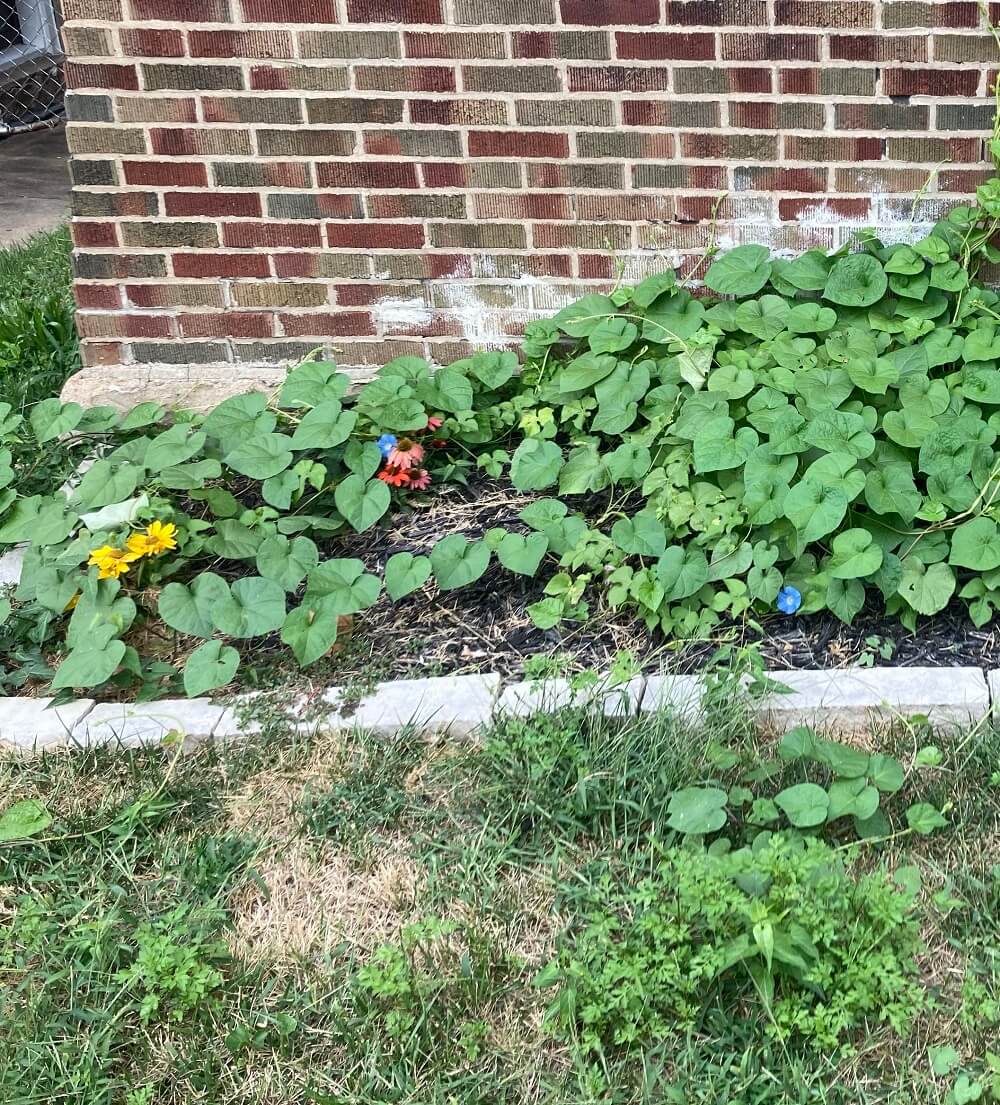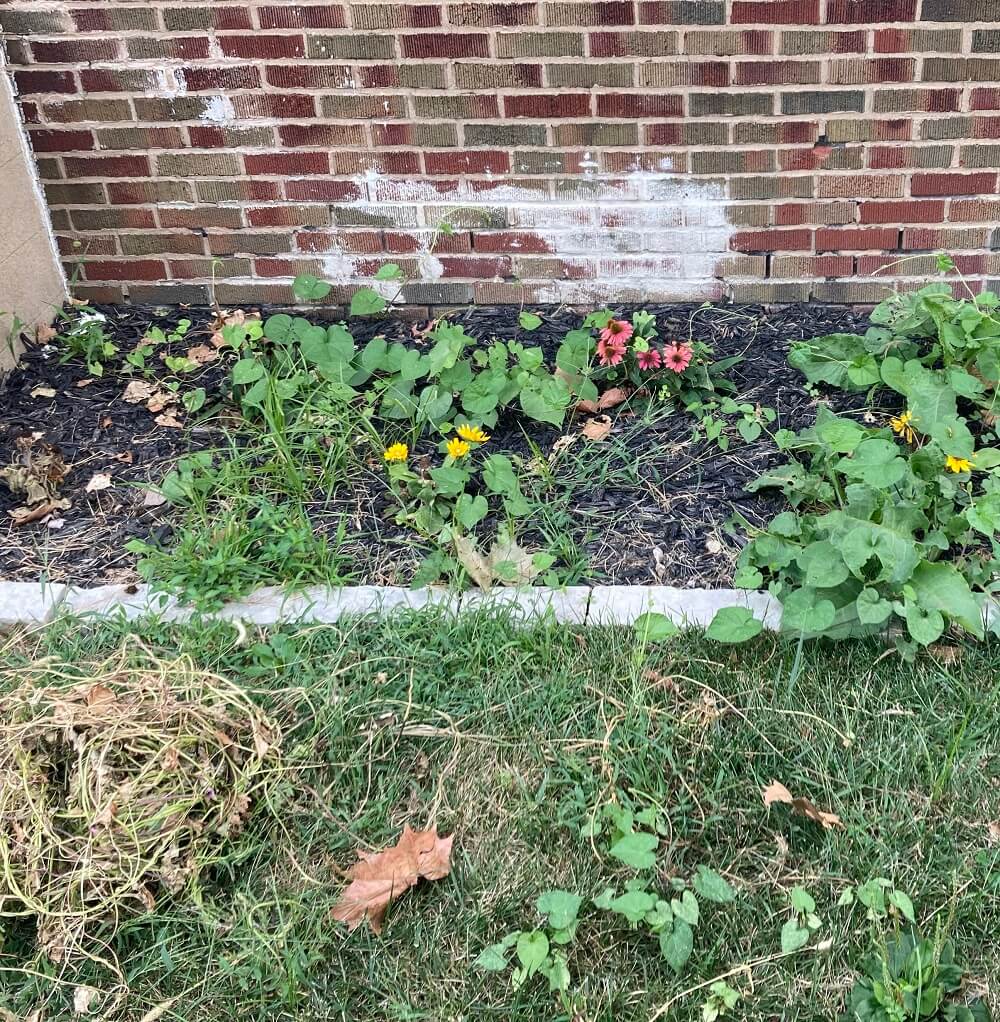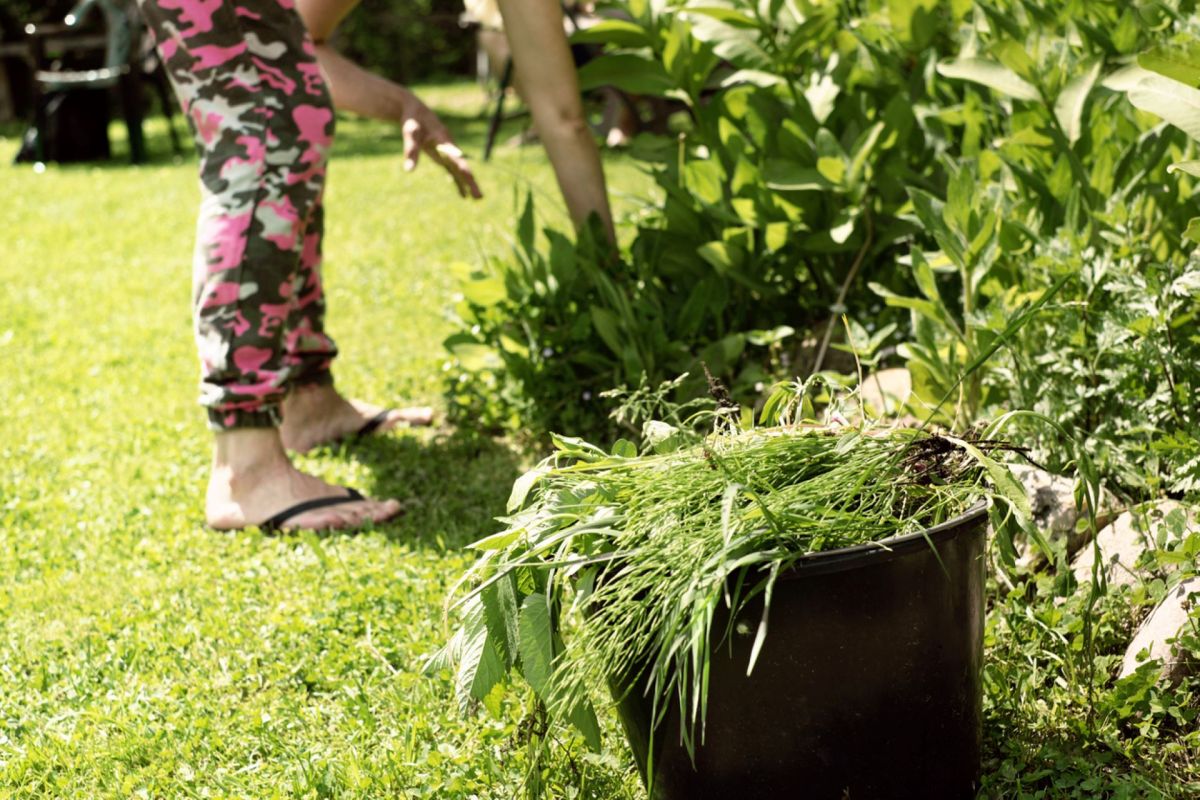One homeowner narrowly avoided a tragic gardening mistake thanks to the intervention of the r/gardening community.
According to the homeowner, they were in a long-running battle with some weeds.
"I need to get rid of these morning glories that have reseeded themselves from last year," they explained, sharing a link to two photos of the unwanted plants.


In the images, the morning glories have overrun the flower beds on either side of the owner's front steps. A few other flowers are struggling to reach the light, but they're dwarfed by the weeds' spreading vines and leaves.
"You can see the pink and yellow echinaceas hiding underneath, and I don't want them harmed," the homeowner continued.
But weeding was out of the question.
"If I use a little Roundup on weeds around my flowers, will it kill the flowers too?" they asked. "I can't bend over easily, and when I do I have great difficulty straightening up again."
Roundup is one of the most common weed killers in the U.S., but it's notoriously bad for gardens and people. Not only will it kill plants indiscriminately, but its chemicals will continue to stick around and contaminate future plantings — not to mention killing beneficial wildlife like fish, birds, and pollinators.
"I hear Roundup stays in the soil for six months, and I don't want it to interfere with any future new additions to my flower bed," worried the original poster.
Commenters confirmed the OP's fears.
"It will probably hurt them," said one user. "You can do an experiment in a corner or something. Find a spot with similar conditions to what you're planning, spray, and check two days later. It will be pretty clear if it's harmful."
However, the commenter also offered an alternative: an all-natural vinegar-based weed killer.
"This stuff doesn't seem to affect the soil," they said. "It kills specifically by contact with the weed."
"Really, a hoe is the easiest thing," suggested another commenter.
There are also other methods to kill a target weed without lasting damage to the soil. Some gardeners recommend boiling water for the task.
Join our free newsletter for easy tips to save more, waste less, and help yourself while helping the planet.









